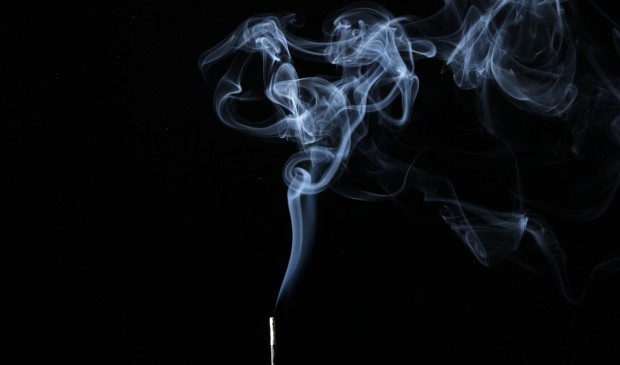Barbecue smoke debate takes new shape
Tuesday, June 2, 2015 by
Tyler Whitson While it did not take action on a set of proposed barbecue smoke regulations Monday, the City Council Health and Human Services Committee made it clear that it hopes to find a way to help residents impacted by smoke without setting broad requirements for barbecue establishments.
Committee members also said, however, that the city should look into expanding its nuisance ordinances as a route for dealing with the issue if there are no viable alternatives.
“I think it would be imperative that we all look at the nuisance ordinance, because that’s very different from the ordinance about smoke and smokers,” said Council Member Ora Houston, who chairs the committee.
Houston was referring to a resolution that Council passed on on April 2 directing staff to initiate a possible ordinance requiring barbecue establishments that use wood- or charcoal-burning stoves or grills and that are located within 100 feet of residential properties to either relocate their smoking equipment or install “smoke-mitigating devices,” such as scrubbers.
Council Member Pio Renteria first proposed a resolution directing staff to draft such an ordinance in late March, citing complaints from residents that smoke from nearby establishments was impacting their quality of life.
At the time, neighbors of Terry Black’s Barbecue on Barton Springs Road and La Barbecue on East Cesar Chavez Street had complained about smoke from the establishments. La Barbecue is now in the process of moving to a new location.
The committee will consider making a formal recommendation on the resolution to the full Council at its next meeting, which will take place on Aug. 3.
In the meantime, city staff will continue researching the effectiveness of the city referring barbecue smoke complaints to the Code Department so that it can work with the Texas Commission on Environmental Quality, or TCEQ, to resolve issues on a case-by-case basis.
The Council Economic Opportunity Committee made such a recommendation on May 11.
Austin/Travis County Health and Human Services Department Director Shannon Jones also agreed to take any new residential barbecue smoke complaints from Council offices and attempt to work out solutions among the community.
Jones advocated for a solution that did not involve making changes to city ordinances just yet. “We’re not saying that there’s not a nuisance there,” Jones said. “I think that what we’re talking about here is an opportunity to utilize the current system that’s in place to try and address those issues.”
According to the city’s chief epidemiologist Janet Pichette, barbecue smokers are legally considered a “small source of air pollution,” meaning that they’re exempt from the Clean Air Act. “However, that doesn’t make them exempt from any kind of notice of violation that might be related to causing a nuisance air emission,” she said, referring to state law.
Pichette explained that a nuisance air emission is “a visible emission that comes from a stack that might impact an entity,” or one that causes a “nuisance odor emission.” If a resident has a complaint about such an emission, she said, that resident can call the regional TCEQ office to initiate an investigation.
Renteria, who observed the committee meeting but is not a voting member, said that he “probably did jump the gun a little” when crafting the original resolution, noting that he wanted to deal with “poor players” and did not intend to push something forward that would impact all barbecue establishments with smokers in Austin.
Skeeter Miller, president of the Greater Austin Restaurant Association and co-owner of the County Line restaurants, said scrubbers would cost $65,000 to purchase and $100,000 to maintain. The expense would be “devastating” to the future of the barbecue industry in Austin, he said.
Renteria said he would like to have a complaint-driven system for addressing the issue, but he wanted to ensure that it has “teeth.”
Mayor Pro Tem Kathie Tovo said the postponement would allow the city to gather more information, particularly relating to TCEQ’s involvement in some of the complaints that prompted the conversation.
“I think that will help us just know whether we need to look at our nuisance ordinance to make provisions for it, if it’s not something that TCEQ can readily (address),” Tovo said.
If residents filed complaints and the agency did not respond, she said, that route “may not offer our residents enough protection.”
You're a community leader
And we’re honored you look to us for serious, in-depth news. You know a strong community needs local and dedicated watchdog reporting. We’re here for you and that won’t change. Now will you take the powerful next step and support our nonprofit news organization?



